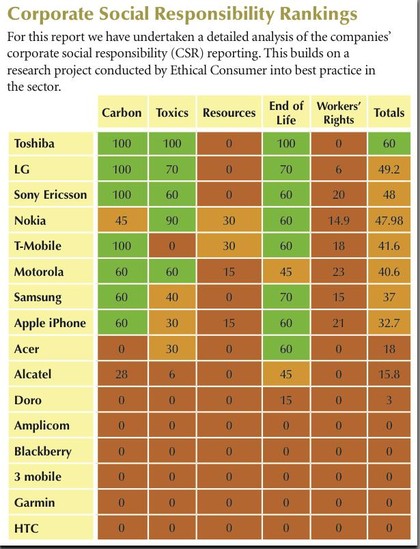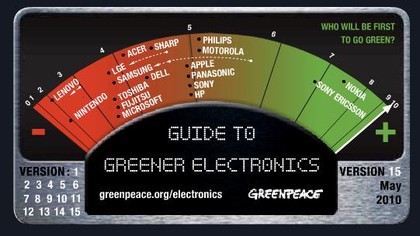How cheap technology is costing us dear
Squeezing suppliers can be a nasty business
Perhaps the Electronics Industry Code of Conduct will save the world. The work of the Electronic Industry Citizenship Coalition, the EICC is a code of practice for electronics companies that prohibits the use of child labour, illegal working practices, dumping poison into duck ponds and so on.
It's been around since 2004 and signatories include Dell, who Greenpeace is currently attacking for its use of toxic chemicals and Microsoft, whose KYE subcontractor has been accused of child labour. So that's working well.
"Images of electronic waste in the form of discarded computers and other 'electro-scrap' dumped in Asia, other social and labour issues as well as pressure from civil society, prompted the electronics sector to develop an Electronics Industry Code of Conduct," Greenpeace says.
"However, despite this Code, the hi-tech sector continues to produce ever shorter-life, often superfluous products with inherently hazardous materials. Why are hi-tech corporations, which profess to be responsible corporate citizens, allowing this to happen?"
It's a rhetorical question. "One answer is that CSR [Corporate Social Responsibility] initiatives, whether they involve Codes of Conduct or reporting guidelines, are voluntary," Greenpeace adds. "At best, CSR can be a way for the best companies to lead the way. At worst, CSR initiatives can even be a diversionary tactic, used by industry to pretend that they are taking action and to avoid regulation."

BAD GRADES: Ethical Consumer grades firms on their Corporate Social Responsibility pronouncements. It's not a great result for HTC
Economic realities
Sign up for breaking news, reviews, opinion, top tech deals, and more.
Those iPhones you see being assembled in Foxconn factories have an estimated profit margin of 60 per cent. Could Apple still make money without using Foxconn? Absolutely. Could it still make money if its kit was assembled in the US? Probably. Will it try? No chance.
Apple, like every other corporation, must give its shareholders the best return on their investment - and the best way to do that isn't to get your products made in your own country, or to work only with firms whose assembly plants are filled with joy and laughter.
"Most companies are taking some steps," Tim Hunt says, "but as they all strive to generate more profit by producing more and more goods at the lowest possible price, they are clearly going to come into conflict with labour and the environment."
Perhaps the answer is to embarrass them. When Greenpeace wanted to draw public attention to the tech industry's environmental record in 2006 it picked on Apple, which was actually one of the more environmentally friendly firms; nevertheless, the Green My Apple campaign used Apple's high profile to great effect and Apple made more improvements. Apple now mentions its products' green credentials in its marketing.

POOR FORM: It's no coincidence that the firms low on Greenpeace's green electronics meter tend to be makers of low-cost kit
Could the same trick work with corporate citizenship? Probably not, because the way our economy works – essentially, shares are owned by large pension funds whose managers are paid by performance and therefore don't really care about the longer term or the bigger picture - means firms' number one priority is short-term profit.
Then again, perhaps the problem isn't the companies. Maybe it's us. Those pension funds are our pension funds, and we're the people who choose to buy cheap kit. Apple is atypical: the profit margin on a laptop is around 2%, while the margin on a netbook is less than one per cent. The aggressive pricing that makes netbooks so attractive also means manufacturers can be left with a margin of just twenty cents.
That means our buying choices matter: if we buy entirely on price, choosing our kit on the basis of who offers the most bang for the least amount of bucks, then we're helping to perpetuate the system.
If we want companies to care about the bigger picture, we need to show them that we care about it, too.

Contributor
Writer, broadcaster, musician and kitchen gadget obsessive Carrie Marshall has been writing about tech since 1998, contributing sage advice and odd opinions to all kinds of magazines and websites as well as writing more than twenty books. Her latest, a love letter to music titled Small Town Joy, is on sale now. She is the singer in spectacularly obscure Glaswegian rock band Unquiet Mind.